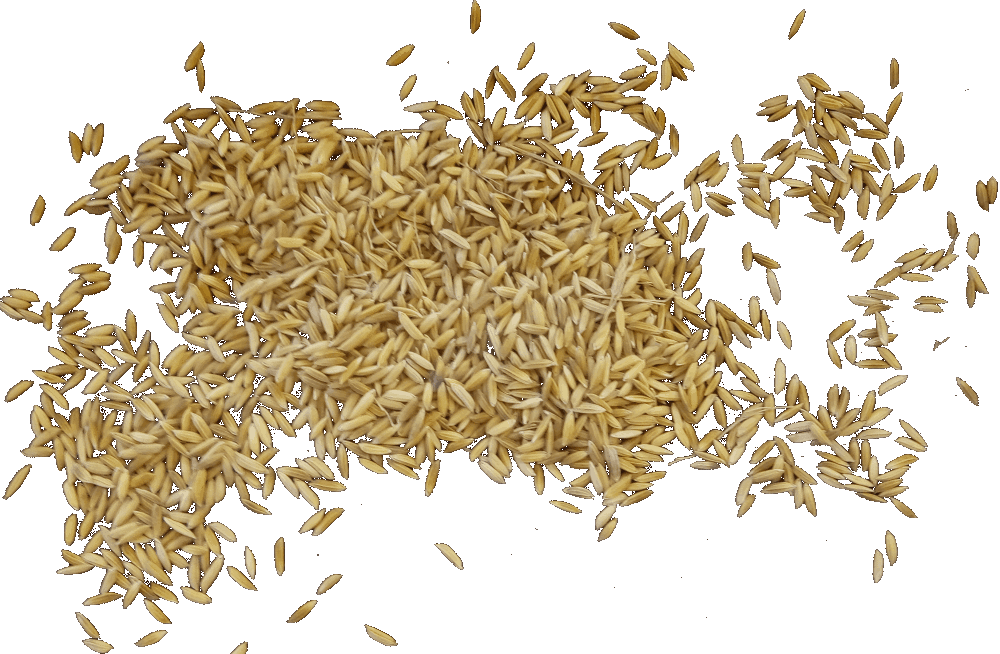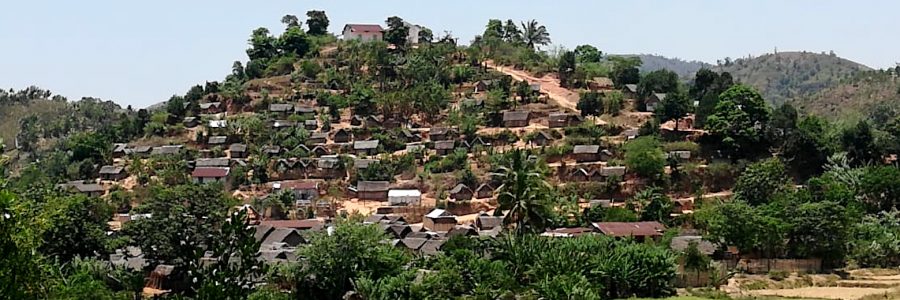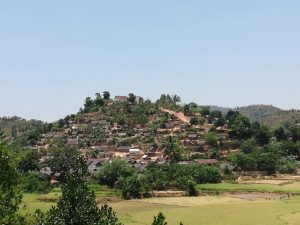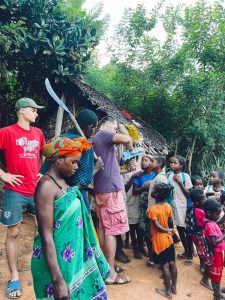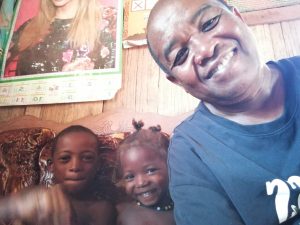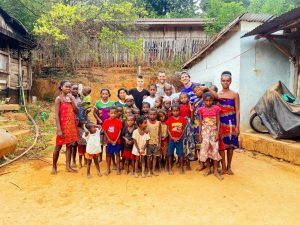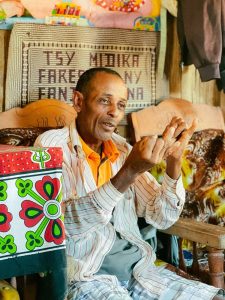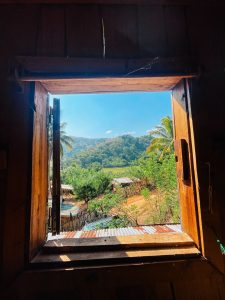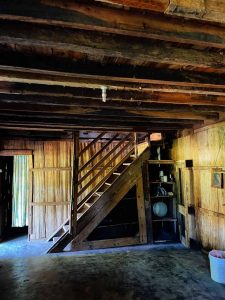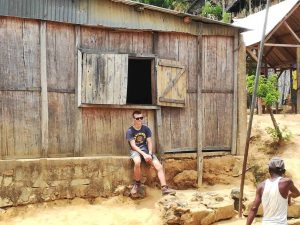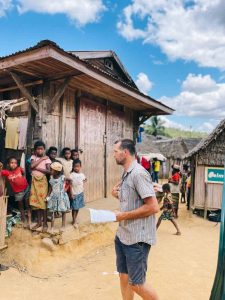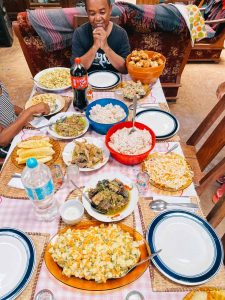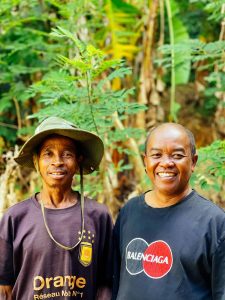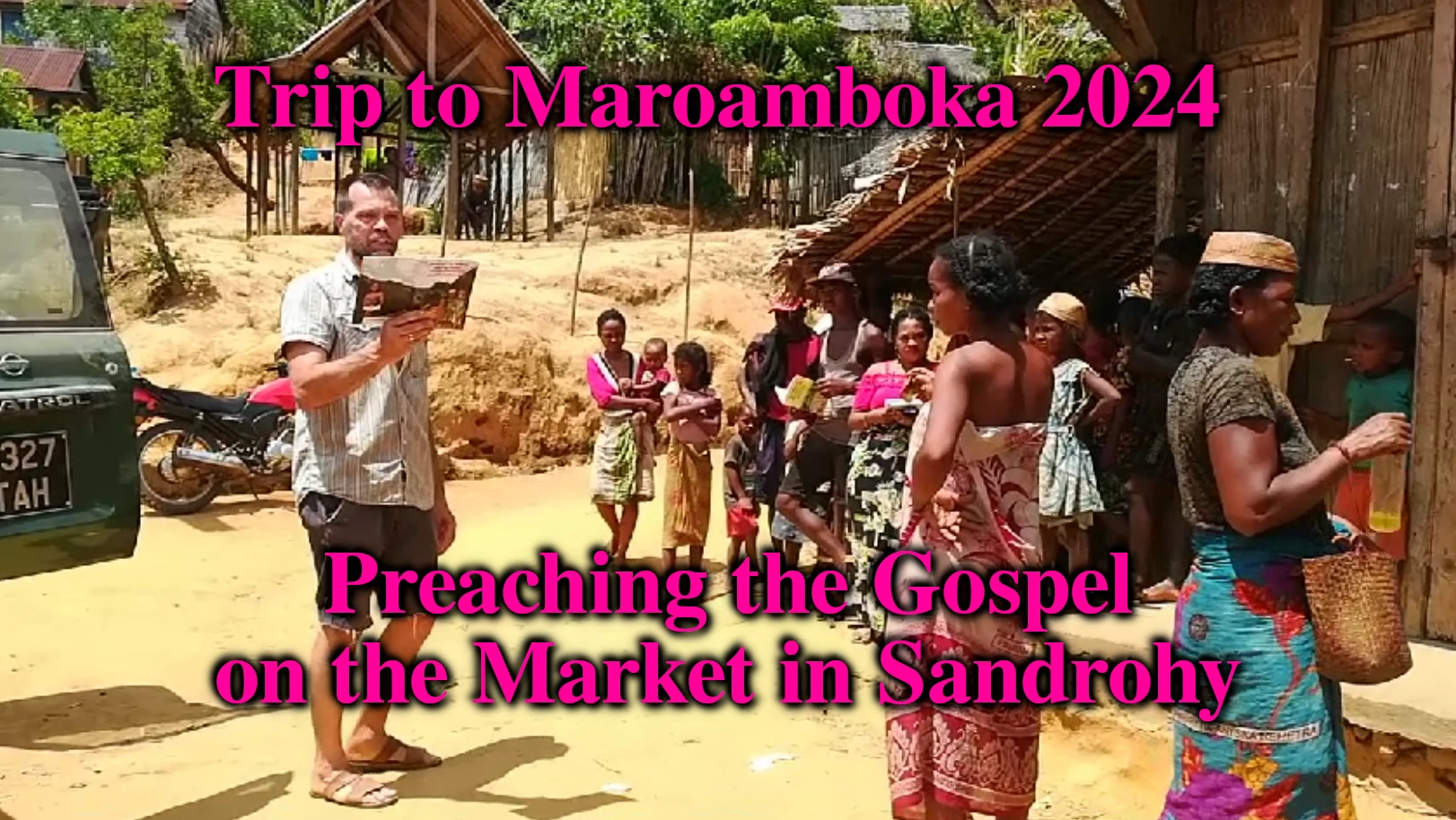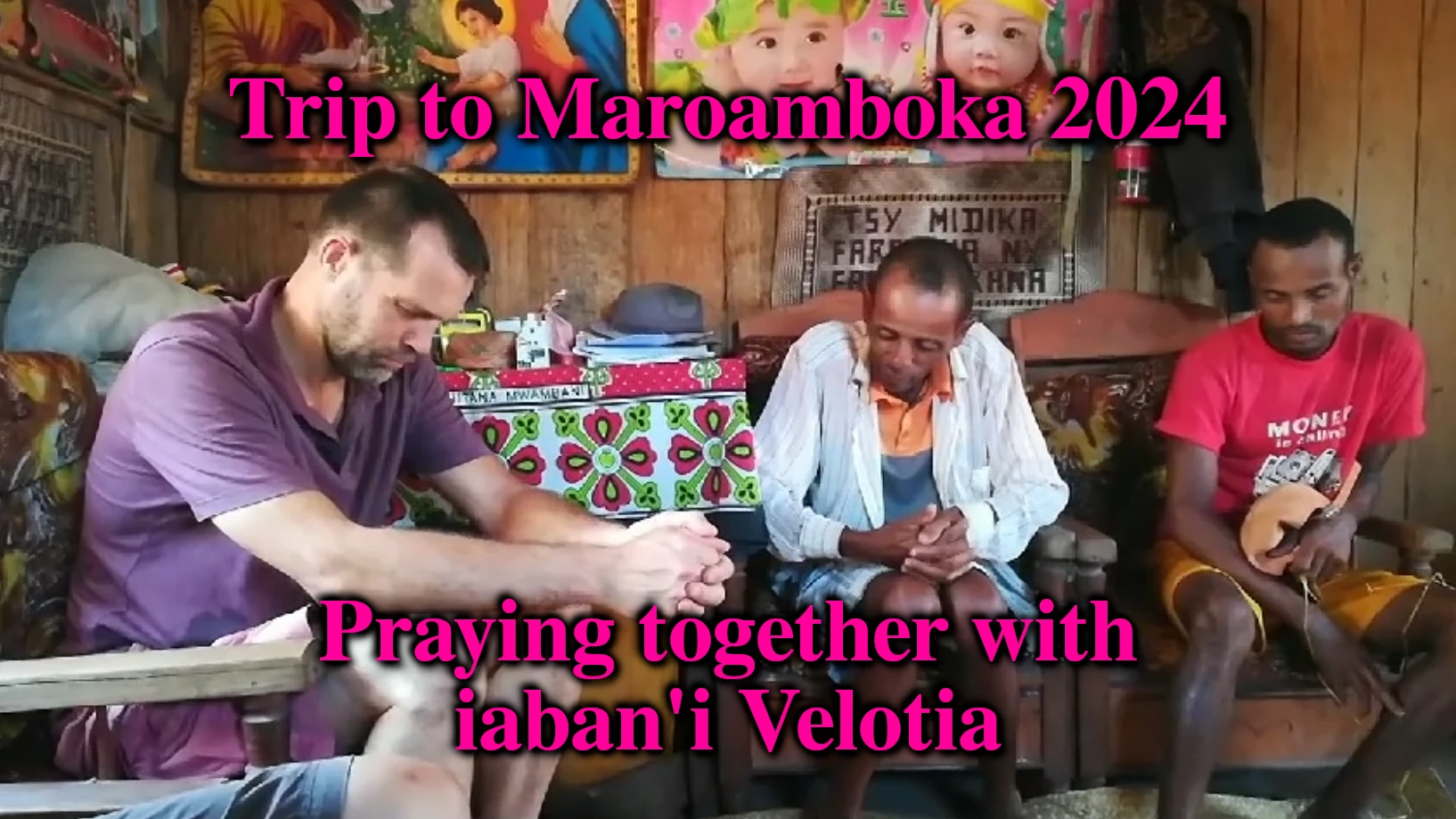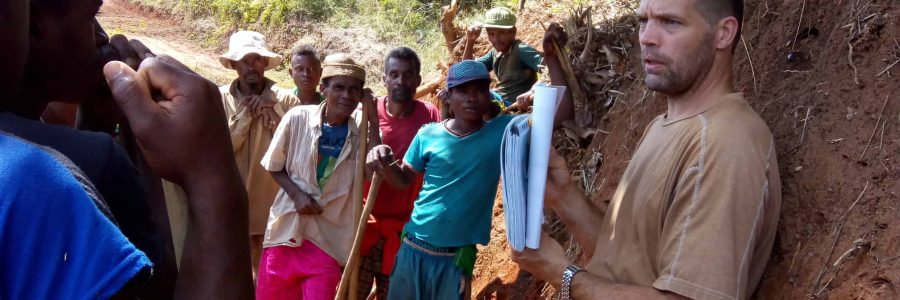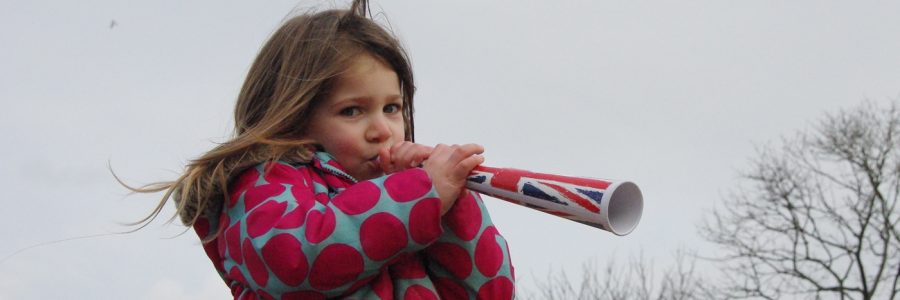Dear brothers, sisters and friends,
Yay! We have arrived at a brand-new year! That went fast. Still, in this letter we would like to reflect on the events of last year—in particular the visit to our village in December.
We had already hinted at it a bit on social media, but there is so much great stuff to share that we need a bit more writing space. In other words: This newsletter is going to be long so sit back and enjoy it! You can scroll down if you would like to see the pictures and video’s.
YES! The Shipping has Arrived
The shipment of our translation work arrived at the end of November. The 800-kilo pallet was delivered to Tana along with a variety of goods from MAF and Helimission. The missionaries from these two organisations picked it up from the depot and close to our house we were able to transfer it from their truck into our car—which then immediately started sinking heavily into the suspension 😂
Once neatly stacked in our garage, we still had to be patient about opening the boxes. Customs first wanted to send another inspector to check whether we didn’t put any naughty things in the boxes. Fortunately, we did not have to wait long and could finally take a look at the booklets. They look fantastic! The spreading of God’s word can begin.
Just a Quick trip before Christmas
A trip to our village, Maroamboka, always requires quite a bit of preparation. In the previous letter, we mentioned that I (Jurgen) would take three people with me, Tiavina, Neto, and Jonoro. Unfortunately, Tiavina had to drop out. The empty place in the car was eagerly taken by Issa.
Neto went along mainly to gain experience while Jonoro could possibly be of encouragement to our friends in the area. We were not sure what to expect because the people in our village were previously very reluctant towards strangers. We did have visitors when we were still living in the village. When we wanted to introduce our friends to the villagers, there was nobody in sight while others had hidden themselves in their houses.
Anyway, the trip was scheduled from December the 16th till the 23rd. Of that, you have to count four days for travelling itself. To make things a bit easier, we asked someone from the village, Narfelo, to do the cooking for us.
From one Surprise to Another
On our way to Maroamboka, we always stop for the night in Ranomafana. This is already fairly close by and many of the people in and around Ranomafana are or speak Antanala. We have tested our translations here many times. Jonoro went for a walk in the evening and met the local pastor. He immediately did what he does best: make contact. Jonoro talked about the work we do. The pastor told him that he already knew about this. He knew that I had already shared the Gospel in dialect several times at the market. The foreigner, who calls himself father of Vanya (iaban’i Vanya), was already quite well known in and around Ranomafana. The pastor was keen to meet me to hear how we could help each other. Jonoro made the arrangement that we would visit him on the way back. That was arranged surprisingly quickly!
Once we arrived in the village, we were warmly welcomed. People were so happy that Issa and I were back home. One person thought we might be dead because normally we came home much more often. Yes, he said ‘home’, as we may live in Tana, but according to the villagers, that’s not really where we belong.
To my surprise, people walked right up to Jonoro and Neto, and immediately started chatting pleasantly with them. Despite the fact that Neto’s Malagasy was limited and Jonoro’s Malagasy sounded different from the language in the village, the people took ample time to welcome them too. No fears or shyness. “No,” the people said, “Jonoro and Neto had been taken along by Vanya’s father, so they can be trusted.”
The First Visit
Despite the heat, we spent our days in Maroamboka well. We mainly went out in the mornings to meet people.
Fanja was, of course, the first person we visited. Fanja and her husband Sylvestre were the people who introduced us to people in 2016. We have always experienced a lot of support from this lovely couple.
Sylvestre and Fanja are deeply involved in the Church of Jesus Christ on Madagascar (FJKM). Unfortunately, Sylvestre was not home, but that did not stop Fanja from inviting us for a delicious meal.
The funny thing was that she and Jonoro remembered each other from a Bible school they had attended when they were young. As a result, conversations went very smoothly and appointments were quickly made.
We shared our plans to send students from various Bible schools to Maroamboka. In Maroamboka, they could then get the needed practical experience. They could then learn what it is like to preach the Gospel in remote areas. Fanja was enthusiastic and eager to help where needed. Not only that, but she knows just about everyone and every village in the area. She is a great source of information! In due course, Fanja will mobilise young Christians who can go with the students to show them the way and introduce them to the people in the remote villages.
Church Grows Steadily
Of course, we also visited the father of Mainty and the father and mother of Luka. These Christian brothers and sister are the teachers at the local Lutheran Church (FLM). The father of Mainty has long used the translated Bible stories to teach new believers the big picture of salvation in the Bible.
The father of Mainty told us of all the happenings in the area. The Lutheran churchbuilding in Maroamboka has become too small! What happened? The village of Tsiombivohitra where I, Jurgen, went almost weekly (for years) to teach and preach the Bible stories, now has a large group of Christians. When I used to go there, I was told that there were only two young people who believed in Jesus. This couple was looked down on because they did not participate in traditional ancestor worship. The young king of the village understood that the Gospel was important but had no interest in following Jesus—after all, it would mean that he would then no longer be allowed to remain king.
Honestly, I sometimes got despondent about the work in Tsiombivohitra. But the Lord goes on. Sometime last year, the sown seed seemed to take root. First, the young couple came to Maroamboka on Sunday mornings to seek the Lord with the brothers and sister in the FLM. But not much later, they took about 20 more people from Tsiombivohitra in their wake. One of those people is the king’s wife!
The tide in Tsiombivohitra seems to have turned. It is just a small village which means that the believers are slowly starting to become the majority. Since it is seven kilometres to Maroamboka, they have now agreed with the FLM leadership to build a sister congregation in Tsiombivohitra.
But this village is not the only one where people are coming to a living faith in Christ. The father of Mainty told us that there are plans to build a church in at least two more villages.
Collaboration
When we moved into the village in 2017, there didn’t seem to be much of cooperation between the FLM and FJKM. Meanwhile, Christians from these churches don’t seem to remember that period 😆
The same question we had put to Fanja, we also asked The father of Mainty and the father and mother of Luka. Would they be willing to help students in their visits to surrounding villages? If so, would they also be willing to take this up together with the Christians from the FJKM. Both questions were answered with a resounding ‘yes’. After all, we worship the same Lord! This is good news because it means we should have more than enough helpers.
The Two Pastors
I was very keen to meet the FJKM pastor, Oliva. Oliva is still young, and his wife recently gave birth to their first daughter, Gloria, in the capital. We visited him. Oliva turns out to have a knack for languages. He speaks excellent English and appeared to switch to Portuguese without much difficulty during his conversation with Neto.
Oliva was very excited about the translation work and is keen to get involved. In February, however, he is going to live just outside our area. Living in our area is very difficult. Especially when you have a small child and a wife who has not yet recovered. The village where Oliva will live is about 25 kilometres away and has direct access to clean water, electricity, and paved road to other big cities. In that area too, our translation work is much appreciated, and Oliva is keen to use it there as well.
The second pastor we have managed to meet was our good friend Doris. Doris is the pastor of a Pentecostal church. His church now has about ninety regular attendees. Doris lives in Tanambao. This was the first village I started visiting in early 2018. When Doris and his wife Alphossin moved there in August 2018, we agreed that I would start visiting other villages, and leave Tanamboa to them. Doris and Alphossin’s work is clearly blessed. After all, the 90 believers are not the only believers in Tanambao. There is other new believers there who decided to worship at the FLM in Maroamboka. This is not surprising considering that the FLM is one of the most well-known denominations on Madagascar. The FLM is known as solid and reliable. The church (Rhema) that Doris and Alphossin founded is somewhat less known and so some prefer to choose the FLM. Doris is fine with that, as long as people start following Jesus!
Why Maroamboka?
Our village, Maroamboka, is actually only small when compared to the central village of our area, Sandrohy. I’ll explain it a bit. In the Dutch province North-Holland, Schagen is a municipality, and for example the village Burgerbrug is a village under that municipality. Likewise, Maroamboka is a village under the municipality of Sandrohy.
Actually, Sandrohy is the central place for the churches—the stronghold of Christianity in the area. The pastor of the FJKM lives there, and the church building is one of stone with a metal roof. It is also the focal point of almost all church celebrations.
Maroamboka, on the other hand, is the place of witch doctors. Seven of them live and work in and around Maroamboka! Some of them are so powerful that people come all the way from the capital to consult them. In short, Maroamboka was more or less the stronghold of Satan.
And it is precisely in Maroamboka that the church is growing! And it is Maroamboka where people come to hear more about the Gospel. Why? No clue, but Issa noted that the Lord has a sense of humour. Issa said, “the evil one must have been happy when we left Maroamboka. But it is as if God helped the evil one out of his evil dream by using Maroamboka for His mighty and glorrious work.” 😎 I like Issa’s conclusion.
Yet also Setbacks
While we would prefer to write only ‘good-news’ letters, we cannot escape the fact that we sometimes experience setbacks too.
Visits to the village seem to attraction of accidents. One time, Siemen had to make an emergency visit to the dentist after a fall. Another time, Issa suffered a flesh wound in a swimming pool. And while I was in the village this time, Katja broke her collarbone.
When I am in the village, we try to call each other every day. So when Abbey called me on Friday afternoon, I unsuspectingly picked up the phone. “Hi daddy! Could you please give me some credit?” When I asked her what she needed it for, she told me she needed to call a taxi to go to the hospital … WHAT?! That was the moment Abbey realised that I did not yet know what had happened. Abbey quickly handed the phone to Katja so she could tell me the whole story. No, I didn’t have to come home straight away because they knew how to get to the hospital themselves 😵💫
After the weekend, we returned home. Besides all the advice of befriended nurses and doctors, Katja and I went to another hospital. The general advice seems to be not to operate immediately. The collarbone will have to grow back together on its own. Should there be permanent immobility, it can still be surgically fixed.
So in the meantime, Katja is walking with a shoulder that does not want to cooperate. Fortunately, it hurts a lot less than it did in the first two weeks, but it is not fun. Luckily, we are blessed with children who know their way around. All five of them help (as usual, but now a bit more) in the household.
We do have to be a bit careful with katja. Our family motto says that you have to feel a hug. We can not abide by that motto right now. Now a hug should be given very softly and gently.
Next Trip
The next trip is already on the agenda. I hope to travel to Maroamboka again on Monday 20 January. This time together with Abbey and Simeon.
The trip is threefold. Halfway through the outward journey, I will join an American missionary, Matt Espeland, who has founded a church at the border of the Antanala region. The idea is that I will go there to see if these people would also benefit from our translation work. Should this be the case, Matt can use the material to teach people in their own dialect.
In Maroamboka, I am going to renew the water pipes around the house with strong flexible pipes. The current (PVC) pipes are completely weathered and crack at the slightest bump. If we do get students in the house, at least they won’t have to worry about that.
Thirdly, I agreed with Menja that we will continue working on the Book of Genesis again. Genesis, with its 50 chapters, is a big project and will take some time before it is ready for the first proof-readings.
All three of us, Abbey, Simeon and I are very much looking forward to it again!
To Conclude
Dear friends. A long newsletter this time. Normally we try to keep it shorter, but as you might have noticed that would not have done justice to all that has happened and been said. Again, below you’ll find the the pictures and some video’s.
We hope that after reading this letter, you, like us, are also looking forward to what the future holds. We can make plans but one thing we know for sure is that “what the Lord intends, happens.” (Proverbs 19:21)
We feel privileged to receive so much support in our work. Thank you for your prayers, compassion, and support!
Together with you, we want to keep trusting in the Lord! Because God is good, always! And always God i s good!
We sincerely wish you God’s blessing!
Katja & Jurgen
Vanya, Issa, Abbey, Dani en Simeon Hofmann.
Things to Pray for:
We are thankful because:
- we serve a great and mighty God;
- God adds daily to His Church;
- of the fantastic time in the village;
- we have such a good relationship with the villagers;
- the translated booklets have arrived;
Pray that/for:
- our financial standing will return to normal;
- the next trip to our village;
- a complete healing of Katja’s collarbone and shoulder;
- we are able to get the booklets to the right people.
- the plans to bring students to the village may succeed.
